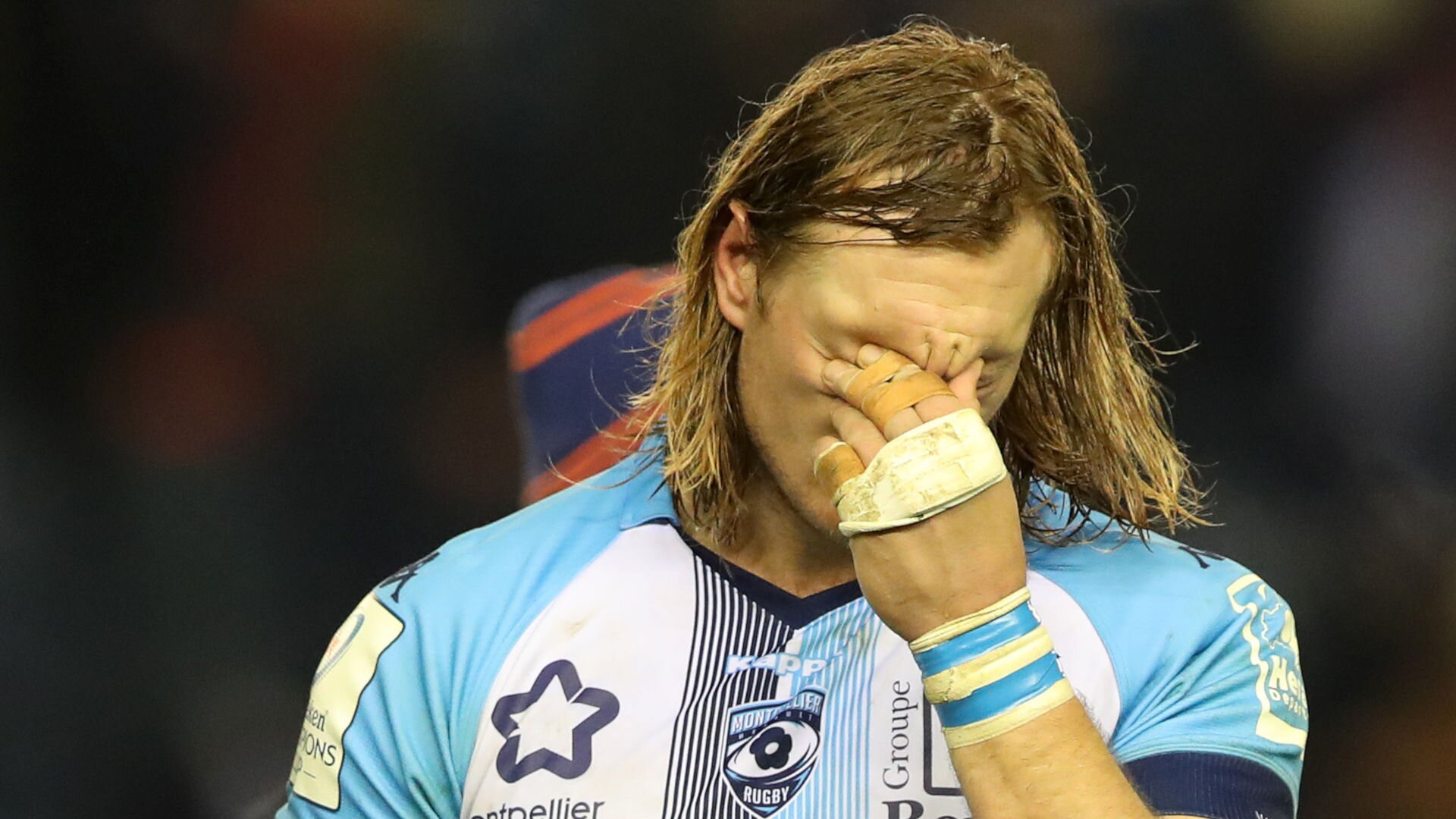Gloucester narrowly beaten in Montpellier despite red card sending-off

Gloucester fell just short of what would have been a memorable win to lose 30-27 to 14-man Montpellier in a thrilling Heineken Champions Cup clash at Altrad Stadium.
The Cherry and Whites were beaten at home by Toulouse in round one and despite an entertaining performance and tries from Callum Braley, Matt Banahan and Joe Simpson, failed to make the most of a second-half red card for Montpellier lock Jacques du Plessis.
The French team’s efforts came from Jan Serfontein, Caleb Timu and Nemani Nadolo, while Benoit Paillaugue kicked 15 points as they defied the loss of Du Plessis to bounce back from a loss to Connacht.
Gloucester took home a losing bonus point, but it could have been so much more.
The visitors were forced into a late change with Banahan replacing Jason Woodward at full-back due to a groin injury, in what was a second string Cherry and White outfit.
Visiting centre Billy Twelvetrees had a nightmare start with two early spills in a scrappy, fast-paced opening before Paillaugue’s penalty got the scoreboard moving.
Montpellier moved further clear with a 22nd minute try from Serfontein after he collected Yvan Reilhac’s kick ahead to score. The try was given by the TMO and Paillaugue converted.
Gloucester were keen to run the ball on every occasion and fly-half Lloyd Evans made a fine break down the centre which ended with Twelvetrees kicking a simple penalty.
Montpellier’s giant forwards were dominant at the scrum but Gloucester had themselves to blame as they tried to run clear – only to make mistakes.
Expect Racing 92 to be very angry…https://t.co/O2TmSoWBIW
— RugbyPass (@RugbyPass) November 24, 2019
It gave the French side the platform from which number eight Timu crashed over from a scrum into which Gloucester had the put-in. Paillaugue improved the effort.
Evans made a second great break and passed inside to half-back partner Braley, who dived for the line to give Gloucester a lifeline. Twelvetrees’ kick was successful.
Wing Nadolo had a try ruled out for an earlier knock-on after he crashed onto the ball on an unstoppable line but Montpellier still had the advantage and opted for a scrum.
After a series of set-pieces, Nadolo powered over again and this time the score was given.
Horrid. https://t.co/dj5ryBxNZK
— RugbyPass (@RugbyPass) November 24, 2019
Paillaugue converted in the 47th minute of the first half to make it 24-10 at the break.
Gloucester’s second half started with a bang as Banahan crashed over following some fine phase play and Twelvetrees narrowed the deficit further before Paillaugue kicked a penalty.
The momentum of the game then changed even further when Montpellier lock Du Plessis needlessly elbowed Gerbrandt Grobler in the head in a maul and was rightly sent off, giving Gloucester a man advantage for the final 24 minutes.
Twelvetrees exchanged penalties with Paillaugue as both teams unloaded their benches and with five minutes to go Gloucester went the length of the field via two clever kicks.
Replacement scrum-half Simpson was the one to dive over. Evans took over the kicking duties after Twelvetrees substitution and nailed the conversion – but Montpellier held on.
– PA



















































